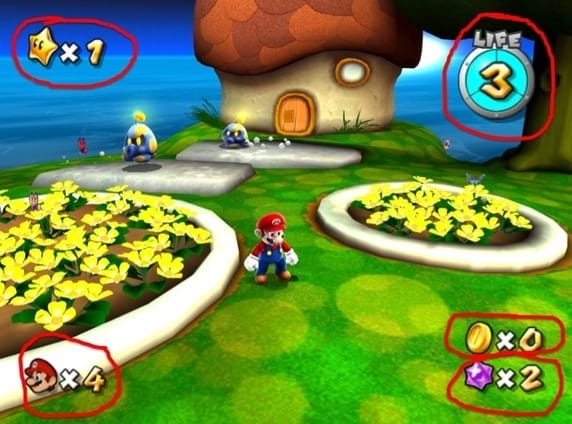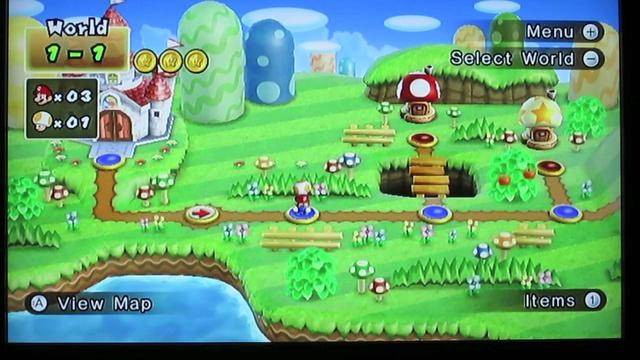|
Video games are addictive -- literally. Kids have died, gotten obese, or contracted scurvy from this addiction. Others spend enough time at their console before the start of high school... that they basically could have completed several college degrees, had they spent that time reading, learning and discussing.
So why don't they? Because, although many teachers are great educators... they just don't understand motivation the way video game companies do.
Video games can be overt and exciting and fun... but they can also be quite repetitive. Kids have to try the same levels over and over. They fail repeatedly. Until, eventually, they make it.
So how do they do it? How do video game makers keep kids glued to the screen for hours and hours? What can parents and educators learn from them? Well, here are five research-backed elements that increase motivation. While helicopter and special snowflake parents might hate them, these are all things that successful video games always provide that schools often do not: 1. Feedback. Knowing how you're doing is important for both progress and motivation. And video games are full of metrics.
In school, kids must often wait several days to find out how they did on a test. Some only get updates at midterms, or after parent-teacher conferences. Compounding this is the fact that many schools have gotten rid of grades altogether -- meaning kids never know how they're doing.
This is bad for two reasons. First, people are horrible at dealing with certainty. Studies show that people in the hospital would rather receive a bad diagnosis... than no diagnosis. A friend of mine was recently diagnosed with chronic fatigue syndrome (CFS), a condition that can sometimes be treated, but cannot be cured. She was still relieved to know what was going on. Second, knowing you're so close to your goal -- seeing yourself make progress or lose ground in real time -- is extremely motivating. It can keep you going when you're about to give up. You can immediately see what you've done wrong, and do it better the very next time. Which leads me to my second point. 2. Second (and third, and fourth) chances. Wouldn't it suck if you got a new video game, had a great out-of-box experience, then tried it out... And when you died, the game was like, "You made it 40% of the way through this level. Good try. Game over." That's basically what happens in most schools. You have one shot to get it right. Either you do, or you don't. There's no use trying to figure out what you could have done better, because you already got your grade, and now you have to prepare for yout next test. Video games do it better. They provide not only great metrics for your progress and success -- but also save points, so that you can keep trying and improving till you understand how to beat the level. Not only do you learn how to accomplish the tasks you originally failed -- but you learn how to do the things you did well even better. The best schools give students multiple chances to improve their performance. They always focus on the next time -- as Jeffrey Pfeffer, author of Power: Why Some People Have it and Others Don't, might describe it, giving "feed-forward," not feedback.
Another important element of gaming is:
3. Sub-goals. Video games are broken into different worlds, levels or units. And each unit is then broken down into additional sub-units.
Imagine how overwhelming it would be if you were expected to do an entire 1792 MB (or more) of game in one go! Or if your goal was to save the princess, rather than just complete this level in under three minutes.
Schools and parents can incorporate this element of video games into their lives through SMART (specific, measurable, attainable, relevant, and time-bound) goal setting. When discussing schoolwork, projects, or other goals, provide scaffolding for your child by asking questions like,
This way, children regularly experience joy and relief throughout the learning process, and they have the chance to celebrate their progress each step the way. 4. The right combination of challenge and mastery. Successful video games help children achieve "flow," or a state of complete immersion made possible by finding the sweet spot between challenge and mastery. See, easy games are boring. But games that are too hard are frustrating. The most successful video games push players to try hard, focus and sometimes fail... but reward players with success for their efforts. As an aside, this is probably one reason why we've stereotypically seen fewer girl gamers than boy gamers. Boys get exciting games, with goals, objectives, sub-goals, challenge, mastery, and constant, onjective feedback. Here's the trailer for Final Fantasy XV: Meanwhile, girls get games like LEGO Friends, in which girls can:
There are really no "addictive" elements to this game. Basically, it seems like video game makers understand motivation really well. They just don't understand girls. Moving on to the classroom. It's very difficult to provide each student with the right levels of challenge and mastery -- especially when you have a room full of students from all different backgrounds. That's where education technology could come in handy. For example, I was a huge fan of the Accelerated Reader program, which tested kids on their reading level, then assigned a list of ability-appropriate books. Each book was rated by difficulty, and was given a number of points you would earn by reading the book. And, of course, each book had online quizzes to test your comprehension. Other EdTech companies provide customized lessons that adjust themselves to each child's level, so you can create a sense of flow in any classroom. However... in general, I feel like EdTech is overused and poorly-designed. Do children feel engaged, or are they just clicking buttons? Moreover, most EdTech games intentionally leave out something that's a huge driving force for both boys and girls: 5. Competition. Kids -- especially boys, but also girls -- thrive on competition. That's one reason they love video games. Whether you're playing alone or with friends, there is a strong sense of winning and losing. Competition is a crucial part of any child's development, and hugely motivating (when not overdone, obviously). Which is a huge bummer, because thanks to helicopter parents and the self-esteem movement, schools have been steadily eliminating competition from the classroom -- and the gymnasium, and the playground. As I wrote in You Won't Believe Why Schools Are Banning Musical Chairs, Literally a hundred years of research shows that competitive and physical play are an essential part of kids' development. "But but but... What about their self-esteem?" well-meaning but misguided educators stammer. Here's the thing: Aggression, competition and losing don't actually hurt a child's self-esteem. But they do teach children valuable coping and resilience skills. You may think you're helping your child out by insulating them from social rejection, embarrassment or hurt feelings as long as possible. But the truth is, you're emotionally crippling them. Resilience isn't something that magically happens once you turn a certain age. It's something you develop by dealing with the small disappointment of being the first kid eliminated from musical chairs or the last kid picked in the kickball game. Determination isn't something that happens automatically. It's something you develop through loss, setbacks and disappointment. It's what happens when you get a bad result, then vow to practice, improve and do better next time. Feedback is great and healthy for students not just because uncertainty is bad -- but because it shows them how they're doing relative to their peers. Because it inspires them to do better, relative to both their past performance, and relative to their classmates. Like it or not, winning feels good -- and losing is important, too. And there's nothing wrong with that. *** Tl;Dr: Video games are addictive because they do a couple of little things that keeps kids focused and motivated. Parents and teachers can learn from that -- especially if they're not obsessed with well-meaning but anti-scientific things like "building up kids' self-esteem" by eliminating important elements of education, like feedback, goals, and competition, from schools. (Also, wakeup call: you can't actually "give" kids self-esteem, and even if you could, there is no proven benefit to having high, unwarranted self-esteem).
2 Comments
7/3/2017 11:45:09 am
I remember when i was small i used to play Rayman, Digger, Test Drive, Need For Speed and several other games. I learnt a lot from them. Children should be allowed to play games so that they can learn various things and this also helps them and makes their reaction better.
Reply
9/22/2017 11:12:18 am
What makes gambling at online casinos so enticing to both avid and neophyte gamblers alike? While online casinos are convenient and fun, gamblers also find that the latest online casino deals are pretty tempting. Sign up bonuses, redeposit bonuses, and weekly or monthly specials are drawing new gamblers to online casino websites every single day.
Reply
Leave a Reply. |
About the Author

Eva is a content specialist with a passion for play, travel... and a little bit of girl power. Read more >
Want to support The Happy Talent? CLICK HERE!
Or Find me on Patreon!
What's Popular on The Happy Talent:
Trending in Dating and Relationships:
What's Popular in Science: Playfulness and Leisure Skills:
Popular in Psychology and Social Skills:
Categories
All
|






























 RSS Feed
RSS Feed